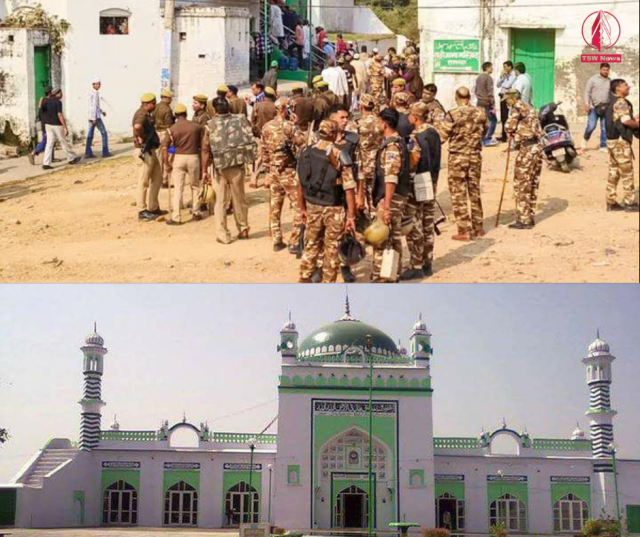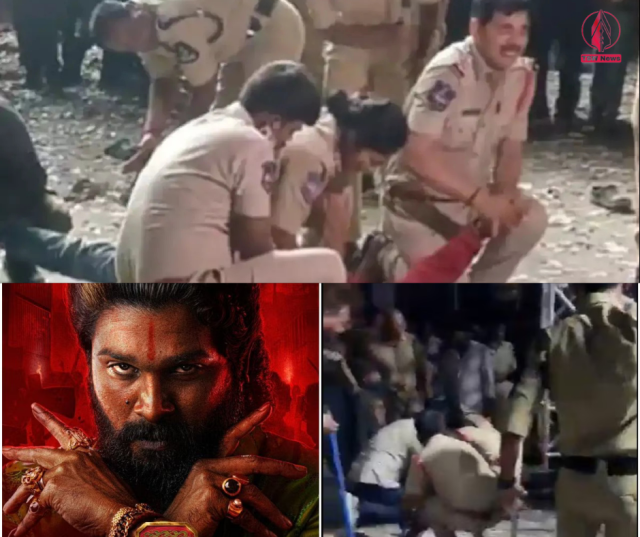Stone Pelting During Mosque Survey Sparks Tensions in Uttar Pradesh’s Sambhal
- Posted on November 24, 2024
- News
- By Arijit Dutta
- 35 Views
Violence erupted during a court-ordered survey of Sambhal's Shahi Jama Masjid, claimed to be built over a Hindu temple. Police used force to disperse stone-pelting mobs. The case, citing historical texts and communal sensitivities, underscores India's challenge in navigating historical claims and religious tensions.

A court-mandated survey of the Shahi Jama Masjid in Uttar Pradesh’s Sambhal turned violent on Sunday as a mob pelted stones at officials conducting the exercise. The survey, initiated following a petition claiming the mosque was built over the site of an ancient Harihar temple, faced significant resistance. To control the situation, police resorted to tear gas and baton charges to disperse the crowd.
The petition, filed by senior advocate Vishnu Shanker Jain, alleges that the mosque was constructed by Mughal emperor Babar in 1529 after partially demolishing the temple. The petitioners assert the historical and religious significance of the site, citing evidence of Hindu temple features and its protection under the Archaeological Survey of India (ASI).
While the survey had proceeded peacefully on November 19 with cooperation from the mosque’s management committee, Sunday’s events marked a sharp escalation. The contentious issue has drawn criticism, with Samajwadi Party spokesperson Ameeque Jamei accusing the BJP of using the situation to stoke societal divisions post-elections. He also referenced the Places of Worship Act, 1991, which prohibits alterations to religious structures apart from the Babri Masjid dispute.
Advocate Gopal Sharma, representing the Hindu side, cited historical texts like Babar Nama and Ain-e-Akbari to back the claims. The case is scheduled for its next hearing on January 29, as tensions surrounding the matter remain high.
Also Read: Elon Musk Reaches Record Net Worth of $347.8 Billion Post-Trump’s Win
The Sambhal survey reflects the broader socio-political challenges in balancing historical claims, legal frameworks, and communal sensitivities in India.




